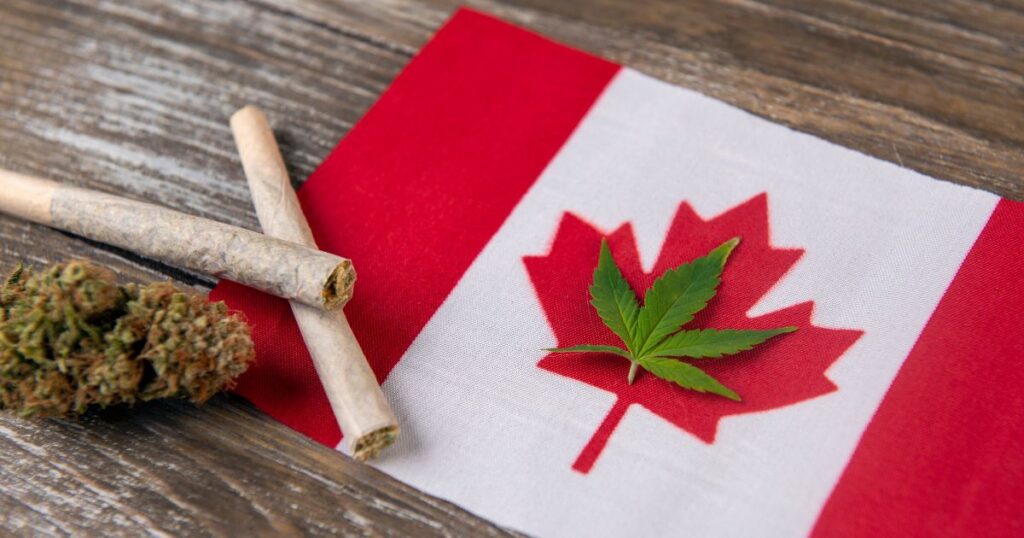Seven years after Canada legalized cannabis, a new national survey reveals a significant shift in public perception. Canadians no longer see cannabis as a niche subculture but as a mainstream consumer product and a vital contributor to the national economy. This change highlights the Canada cannabis industry economic growth as it becomes an important economic sector.
The data, collected by Abacus Data, shows a clear public mandate for the federal government to modernize cannabis policy, with a majority of citizens viewing the sector as an opportunity for economic growth.
This growing support comes at a time of global economic uncertainty and trade pressures. As a result, many Canadians are looking inward, recognizing the potential of homegrown industries like legal cannabis to provide stable jobs and export opportunities.
he survey findings suggest a political opening for leaders to embrace this evolving perspective, treating cannabis not as a political risk but as a strategic asset for the nation’s future.
Cannabis is Mainstream in Canada
The survey confirms that cannabis use is widespread and has become a normal part of everyday life for many Canadians. More than one-in-three adults (35%) reported using cannabis in the past six months, and this figure rises to half (50%) among those under 45.
The data also shows that recent usage is common, with 32% of all Canadians having used cannabis in the last two weeks—a rate now on par with nicotine use (33%).
Consumption is not limited to one form. Over the past six months, 25% of Canadians have used edibles, and 16% have used dried flower, with others using vapes, oils, and beverages. For many, cannabis is a preferred alternative to alcohol.
Among users, 30% say they prefer cannabis over alcohol, and another 29% view them equally. These numbers paint a clear picture: cannabis has moved beyond the fringes and is now a standard consumer choice for a significant portion of the population.
Canadians Feel Cannabis is an Important Economic Contributor
A strong majority of Canadians (59%) agree that the legal cannabis sector is an “important contributor to Canada’s economy.” This is consistent across different regions, genders, and even political lines. Support is particularly high in Ontario (65%) and Atlantic Canada (66%).
Notably, this economic view is shared across the political spectrum. A majority of both recent Liberal voters (69%) and Conservative voters (58%) recognize the industry’s economic importance. This bipartisan consensus highlights a widespread understanding that the cannabis sector is a valuable part of Canada’s economic framework.
“Canadians are connecting the dots between economic resilience and smart domestic policy,” said David Coletto, CEO of Abacus Data in a press release about the survey, “At a time of growing global uncertainty and rising protectionism, Canadians are taking a pragmatic view that growing the legal cannabis sector is one of the ways to strengthen Canada’s economy, create high-value jobs, and build greater industrial independence at home”.
An earlier report from Organigram and the Canadian Chamber of Commerce’s Business Data Lab found that in 2024, the legal cannabis sector contributed $16 billion to Canada’s direct GDP and supported over 227,000 jobs.
A Call for Policy Modernization
The survey indicates that Canadians are not just accepting of the cannabis industry; they want to see it grow. When asked about the future of federal cannabis policy, nearly six-in-ten (59%) said they favor “updating the rules” to support economic growth over maintaining strict limits. Similarly, 58% would be “excited or okay” if the government made it easier for the sector to create jobs.
These findings suggest that Canadians want a more sophisticated regulatory approach that balances public health with economic development, allowing the industry to innovate and compete globally.
Support for New Products and a Vision for the Future
There is considerable public appetite for innovation in the cannabis market. A majority of Canadians (57%) are open to the federal government investing in the growth of new product categories such as cannabis beverages, edibles, and wellness items. This support is even stronger among Canadians under 45 (64%) and Liberal voters (68%).
When asked to imagine a future with updated cannabis regulations, Canadians responded with overwhelming positivity. Over 70% believe it would be a good thing if Canada became a global leader in wellness-focused cannabis products or created tens of thousands of new jobs in the sector.
Three-quarters of respondents would welcome breakthroughs in cannabis-based treatments for pain and anxiety. The prospect of the legal cannabis industry generating $5 billion in tax revenue to fund social services also received strong support.
Path Forward for Canadian Cannabis
The message from the Abacus Data survey is unambiguous: Canadians have embraced legal cannabis and see it as a key part of the country’s economic future. The public has given the government a clear mandate to move beyond the initial framework of legalization and adopt policies that foster growth, innovation, and competitiveness.
Updating cannabis policy is no longer a politically risky proposition. Instead, it presents a low-resistance opportunity to bolster a homegrown industry, create jobs, and strengthen Canada’s economic resilience.
As other nations begin to explore legalization, Canada has a chance to solidify its position as a global leader in the cannabis industry. By treating the cannabis sector as the significant economic driver it has become, the government can align its policies with the clear will of the Canadian people and unlock the full potential of the industry.

















